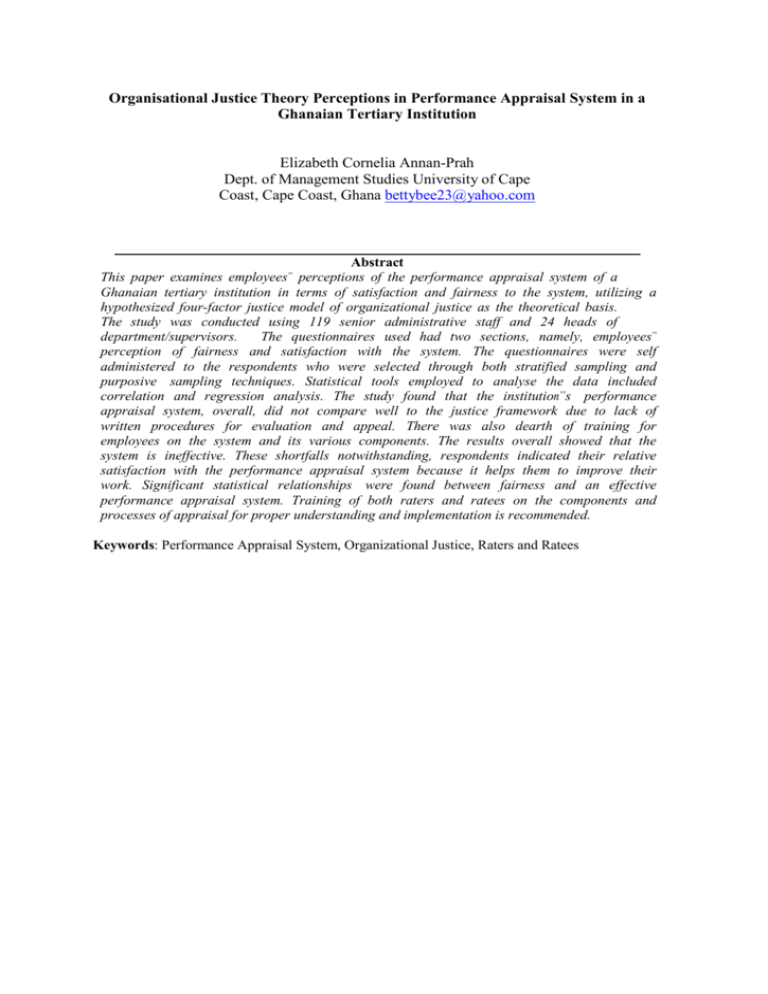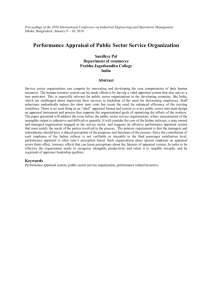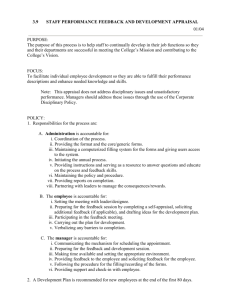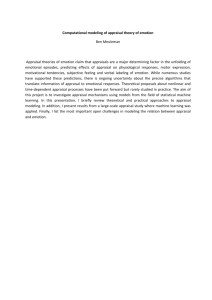Organizational Justice Theory Perceptions in Performance Appraisal
advertisement

Organisational Justice Theory Perceptions in Performance Appraisal System in a Ghanaian Tertiary Institution Elizabeth Cornelia Annan-Prah Dept. of Management Studies University of Cape Coast, Cape Coast, Ghana bettybee23@yahoo.com Abstract This paper examines employees‟ perceptions of the performance appraisal system of a Ghanaian tertiary institution in terms of satisfaction and fairness to the system, utilizing a hypothesized four-factor justice model of organizational justice as the theoretical basis. The study was conducted using 119 senior administrative staff and 24 heads of department/supervisors. The questionnaires used had two sections, namely, employees‟ perception of fairness and satisfaction with the system. The questionnaires were self administered to the respondents who were selected through both stratified sampling and purposive sampling techniques. Statistical tools employed to analyse the data included correlation and regression analysis. The study found that the institution‟s performance appraisal system, overall, did not compare well to the justice framework due to lack of written procedures for evaluation and appeal. There was also dearth of training for employees on the system and its various components. The results overall showed that the system is ineffective. These shortfalls notwithstanding, respondents indicated their relative satisfaction with the performance appraisal system because it helps them to improve their work. Significant statistical relationships were found between fairness and an effective performance appraisal system. Training of both raters and ratees on the components and processes of appraisal for proper understanding and implementation is recommended. Keywords: Performance Appraisal System, Organizational Justice, Raters and Ratees











